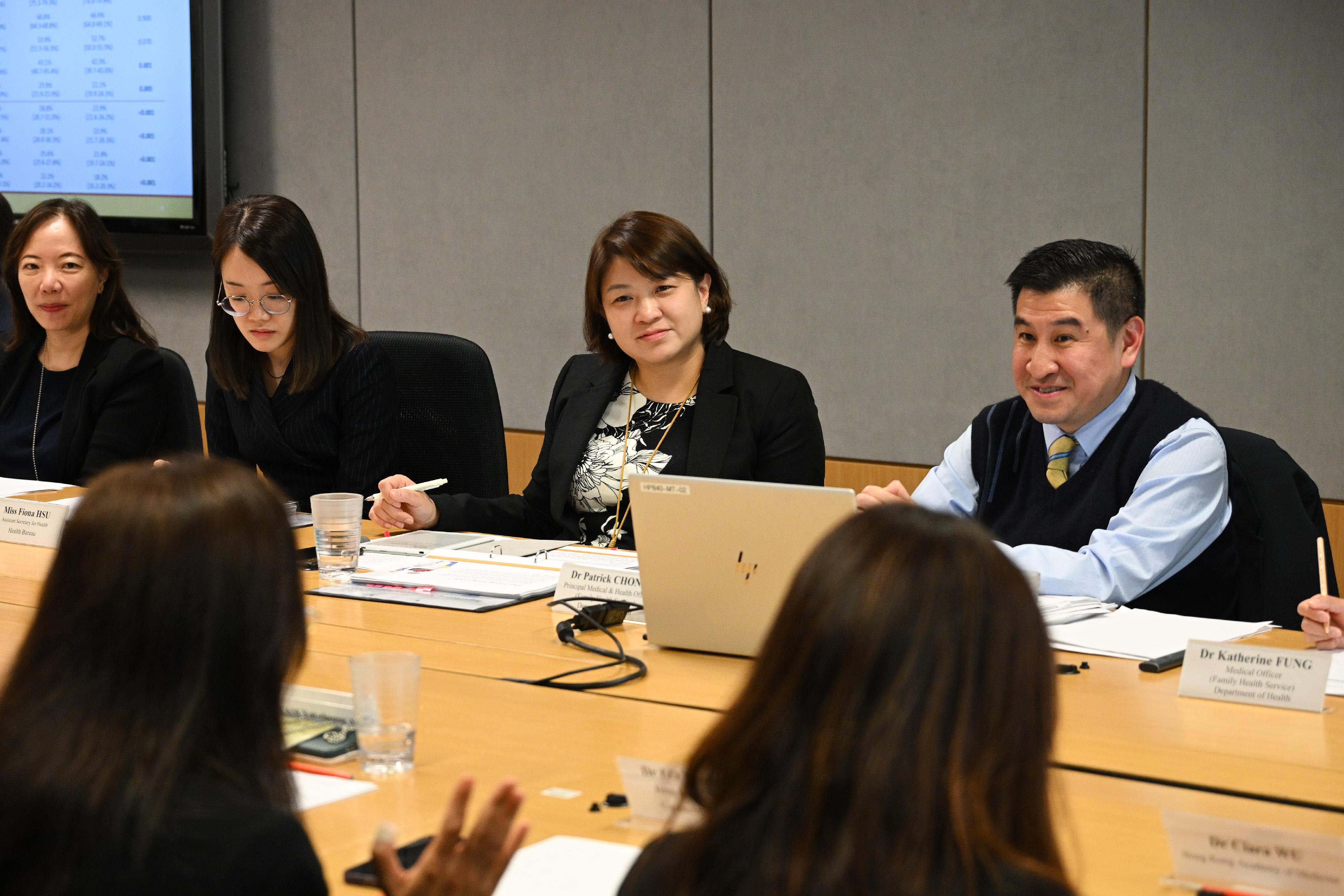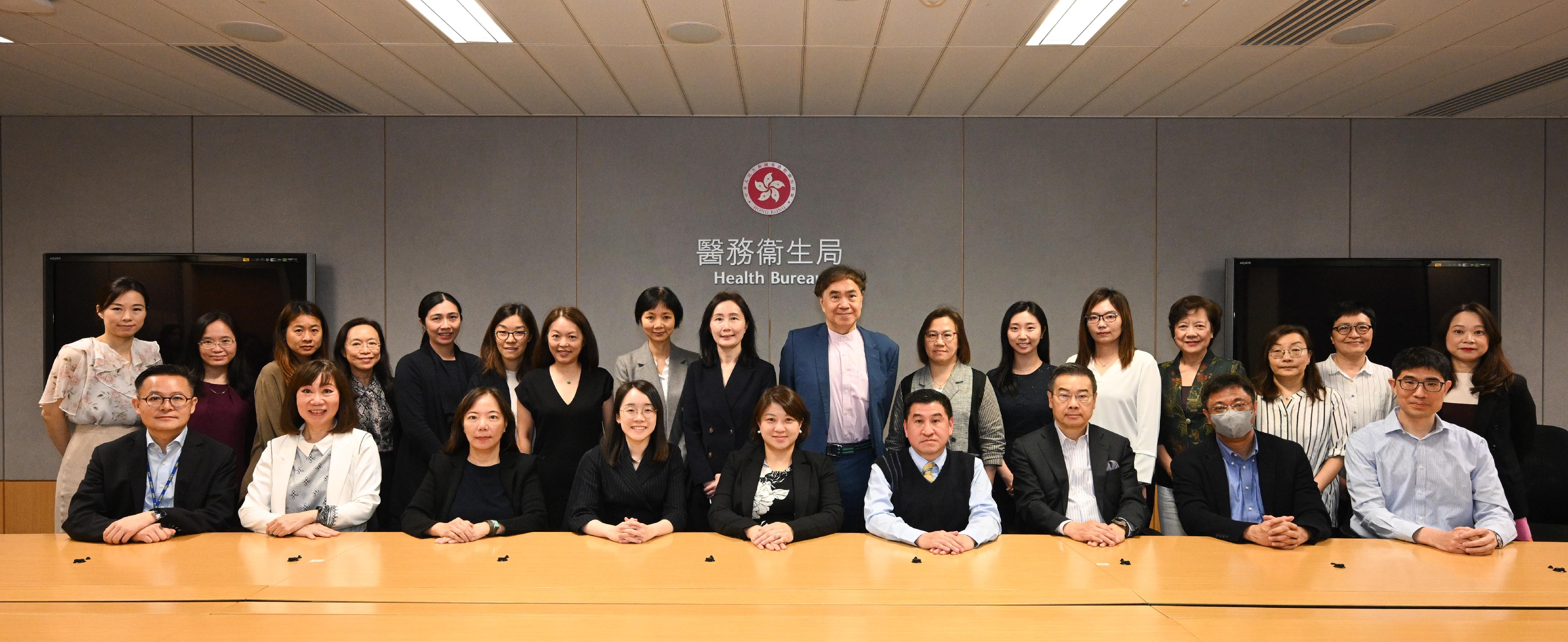Under Secretary for Health chairs ninth meeting of Committee on Promotion of Breastfeeding (with photos)
******************************************************************************************
At the meeting, representatives of the Department of Health (DH) reported to members of the Committee the findings of the latest Breastfeeding Survey (BF Survey). Although the last two surveys covering babies born in 2020 and 2022 respectively show a decline in the local breastfeeding rate (presumably due to the constraints posed on the support services and promotion in hospitals, Maternal and Child Health Centres (MCHCs) and the community due to various anti-epidemic measures implemented during the COVID-19 epidemic), the breastfeeding rate on hospital discharge still reached 85 per cent in 2022, marking a significant increase when compared to the 55 per cent recorded in 2000. During the same time frame, the rate of exclusive breastfeeding till 4 months of age rose from 8 per cent to 22 per cent. These reflected that the community is, in general, supportive of breastfeeding by virtue of the proactive and close collaboration between the Government and different sectors.
Dr Lee said, "Breastmilk offers very important nutrients to infants and young children, thereby reducing their risk of contracting serious complications while creating a protective health barrier for them. To go the extra mile at the policy level, the Chief Executive proposed in the 2023 Policy Address the initiative to establish a breastmilk bank and formulate the related mechanism for breastmilk donation in 2025 to provide breastmilk for infants and young children who cannot be breastfed by their biological mothers, with a view to benefitting the premature and severely ill babies in need."
Professional support from healthcare facilities is crucial to the effective advocacy and promotion of breastfeeding. At present, all eight public hospitals with obstetrics and gynaecology departments are accredited Baby-Friendly Hospitals (BFHs). Of the 28 MCHCs under the DH, three of them have been accredited as Baby-Friendly health facilities, whereas accreditation procedures have also commenced for the remaining 25 MCHCs. The MCHCs will formulate infant feeding policies and action plans, provide training for staff members, and keep on monitoring the implementation of breastfeeding support measures, etc. Apart from public healthcare institutions, the Government will also pursue to encourage private hospitals to start the BFH accreditation procedures so as to enhance the professional support of the healthcare institutions as a whole for breastfeeding families.
Representatives of the DH also reported to the Committee the latest progress of a series of initiatives for promoting breastfeeding, including publicity efforts for encouraging the implementation of the Breastfeeding Friendly Workplace policy and fostering the establishment of Breastfeeding Friendly Premises in public places to support breastfeeding mothers in breastfeeding their babies or lactation anytime and anywhere, strengthening the Peer Support Scheme for breastfeeding mothers, as well as setting up a working group under the Committee to reinforce and consolidate the breastfeeding-friendly practices in birthing hospitals.
In addition, since the Government's introduction of a mandatory requirement in the sale conditions of government land sale sites for new commercial developments in 2017 for developers to provide babycare rooms and lactation rooms (LRs), the Government has already included relevant requirements in the sale conditions for over 20 government land sales sites for new commercial developments as at March 31 this year. Meanwhile, the Government has also mandated the provision of babycare facilities and LRs in some newly completed government premises. As of March 31 this year, there were more than 380 babycare rooms in government properties.
Dr Lee added, "The Government will continue to work closely with different sectors of the society and step up publicity for breastfeeding in the community through different channels in a bid to cultivate a stronger supportive culture to breastfeeding and create a breastfeeding-friendly environment. In particular, the Government will strengthen the professional support offered to breastfeeding mothers by the healthcare sector, including expediting the accreditation of Baby-Friendly health facilities."
Established in April 2014, the Committee comprises members from relevant healthcare professions and academia as well as representatives of organisations promoting breastfeeding. The Committee is responsible for providing recommendations on the strategies and action plans for further strengthening the promotion, protection and support for breastfeeding as well as overseeing the relevant progress, with a view to enhancing the sustainability of breastfeeding and advocating breastfeeding as the mainstream babycare mode to be widely accepted by the general public.
Ends/Tuesday, April 9, 2024
Issued at HKT 16:06
Issued at HKT 16:06
NNNN






